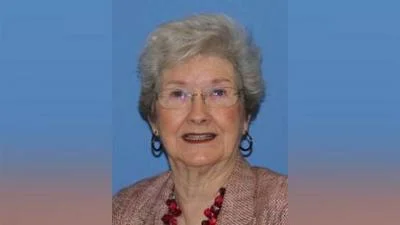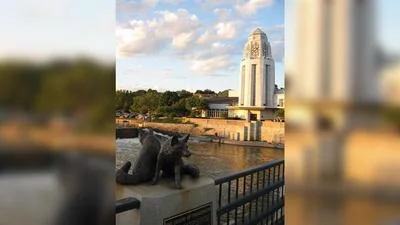City of Batavia issued the following announcement on Oct. 15.
Temporary Outdoor Structures are allowed on private or public property under the following conditions:
• Tents or other structures may not be placed in any public right of way.
• Tents or other structures that hold multiple parties must have at least two sides of the tent open to allow
airflow when people are present. If more than two sides of a tent or structure are enclosed while people are
present, the structure is considered indoor space for purposes of the guidelines.
• Domes or enclosed structures may be used for individual parties only and must have ventilation to circulate
air.
• All tents/structures require a building permit. Fire-resistant or flame certification need to accompany the
application.
• Structures must be weighted, anchored or secured to the ground per manufacturer’s guidelines, but cannot be
anchored with any method requiring penetration (staking, drilling, etc.) into the public parkway, sidewalk or
street.
• All structure materials should have a fire-resistant certification or flame certification attached to the tent
showing material is fire-rated or noncombustible.
Heating Devices must meet the following operational regulations:
• Heating equipment must be shown on the site plans. The type of heating appliance and their data sheets need
to be included with the application.
• Electrically powered heating devices are permitted if installed by an electrician.
• Gas, liquid or solid burning heaters or devices are only allowed in open, uncovered areas.
• No open flame devices, including heaters, candles, lanterns, fire pits, fire tables etc. allowed under canopies or
tents.
• Heating devices must be listed for their intended use and meet all requirements set forth in the
manufacturer’s installation and operating instructions. All devices must be secured to prevent tipping or
falling.
• Heating equipment should be unplugged or disconnected for overnight storage.
• Employees should be trained in proper installation of fuel tanks and in detecting leaks.
Additional Safety considerations to ensure responsible operations:
• Outdoor spaces with heating devices must keep devices away from combustible materials, such as tents, table
clothes, etc., at all times.
• No hay, straw or other dried organic material is allowed where heating devices are located. They are also not
allowed in enclosed tents or within the building.
• Enclosed areas with heating devices must have clearly marked entrances and exits.
• Businesses must have sufficient fire extinguishers to cover indoor and outdoor spaces.
• Restaurants need inclement weather plans in writing and staff training to prevent any injuries in storms, snow
or other unsafe situations.
• If plastic domes or other enclosed spaces are used (including tents with sides), establishment must post
placards advising about increased risk of transmission within an enclosed space.
• All temporary electrical installations must be code compliant.
Inclement Weather and Snow Removal
• Use of tents and other temporary structures may be unsafe and prohibited during severe weather events
(wind, snow, etc.).
• If a tent or other temporary structure is determined to be the source of icy conditions on a public right of way
the structure will be required to be removed and the building permit will be revoked.
Original source can be found here.





 Alerts Sign-up
Alerts Sign-up